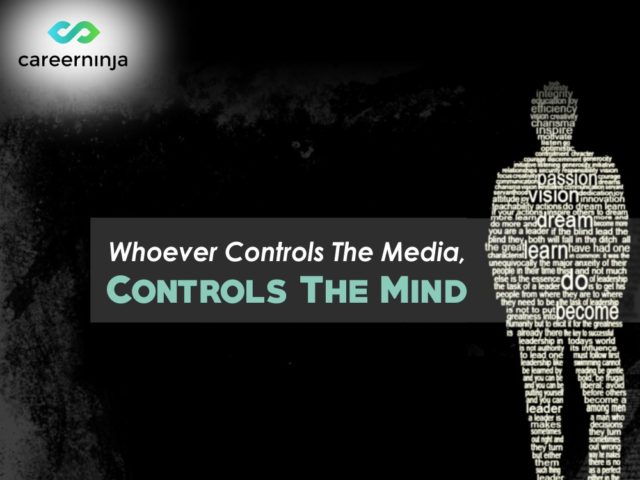What is Journalism? To put it simply, journalism refers to the production and distribution of reports on recent events. All journalists are storytellers. They report news stories about everything ranging from politics and sports to social issues and entertainment. The public uses a journalist’s information to form opinions and make decisions.
What is journalism is difficult to decipher because the paradigm of journalism has shifted over the decades, there are a few roles that have remained prominent in the field. Take a look!
Reporter
The job of a reporter is to gather information and present it in written or verbal form. The public receives this information through print media, electronic media and now even multimedia. While most reporters work with news organizations, some others choose to freelance. General reporters cover all kinds of news stories. However, most of them specialize in areas likes sports, politics etc.
Sub-editor
A sub-editor reviews stories written by the reporters and streamlines them in accordance with the special need of a newspaper, magazine, bulletin or web-page. The sub-editor does not gather information himself. Rather, his job is to concentrate on how a story is best presented to their audience.
Editor
An Editor decides what goes in a newspaper, magazine or news bulletin. He/she looks over all the content that gets published or broadcast and all the journalists report to him/her.
Specialist Writer
A specialist writer writes a commentary or review of things such as books, films, art and performances. They are more knowledgeable on certain topics as compared to others.


What is journalism like? What do practicing journalists like and dislike about their profession? Straight from the horses’ mouth!
According to industry professionals, there are several reasons to love journalism. “You have the freedom to travel anywhere you want. Unlike other professions, you don’t have to answer to anyone but the editor”, says business journalist Salman. He goes on to add, ”But there are cons too. You’ve got to adhere to deadlines.” Also, being a journalist is synonymous with constant learning. He further says, “You have the opportunity to work in different areas like the banking sector, telecom sector etc. This makes you more professional and also leads to overall development”. What’s more? If you detest rigidity, Journalism is for you. “You get to travel if you are reporting,” says journalist Priya (name changed). Lastly, journalism makes you a better person. Yes, it’s true! “You get to interact with people from all walks of life.” Salman says. “These interactions make you aware of your own biases and you become more empathetic as a person.”


That said, journalism is not without its challenges.
“There is no job security in this profession.” Salman says. “People get fired more often than not.” Receiving timely payment is yet another challenge. Salman attributes this to a struggling Indian media coupled with dysfunction within the industry. Yet another downside is that there is very little room for error in this profession. “You need to be careful as even minor mistakes can cost you dearly”. Lastly, journalists share the sentiment that their work is sporadic. This is mainly because a journalist’s job is based on requirement. “You don’t have a personal life or time for your hobbies”, according to Priya. “You may even have to sacrifice a few holidays”, Salman adds. Therefore, it is safe to say that journalism is sort of a double-edged sword.
Have you ever wondered what a day in the life of a journalist is like?
A journalist has to stay on top of the latest trends. They do this by checking newswires such as the Associated Press or Reuters as well as social media platforms like Twitter and Facebook. He/she has in-depth conversations with the editor about which stories are current and which ones are unusual. No two days are same in the life of a journalist.
Once the journalist has a story to cover, he is responsible for conducting in-depth research. However, sometimes journalists have to find their own stories. Most journalists get their stories by perusing press releases, observing processes in their respective beats, talking to people and being members of communities. Once they have zeroed down on a story, that’s when the legwork begins. From verifying facts to conducting in-depth research, journalists have to hit the ground running for every story they cover. This involves the identification of potential sources, on-the-spot reporting, taking photos and videos and doing contextual research to find out related news items.


What is a beat?
A beat is assigned to all reporters. That is, they are given a subject area to cover and write about. Beat reporters cover everything from a specific sports team to local crime. They develop experience in their beat area by cultivating contacts, getting to know the right people and earning their trust. For example, a crime reporter who is reporting on a gang from a particular area has informants in and around that area who give him regular updates.
What is journalism?
Journalism does not allow one’s biases to creep in while one is researching the story. One needs to collect opposing views for each story that one covers and present both sides without letting one’s opinion colour the piece. This allows the audience to form their own views.
One of the most multi-faceted professions out there is journalism. One needs to be willing to dabble in a plethora of different subjects on a daily basis if they want to take up and be successful in this profession.
Since you’re here, take a look at the Pros and Cons of Journalism you would want to know!


































Doable ! build a reputation and make trust when using the people inside your niche.
Find to be able to keep visitors coming for you to your web
page. Customers like these and search engines do additionally.